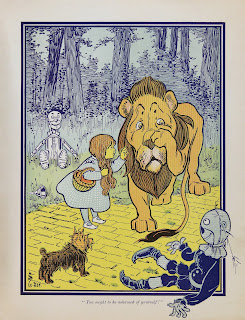Week 6 Lab: Storytelling TED Talks
Hogwarts 10 by ahigett. Web source: Creative Commons.
The Danger of a Single Story
Chimamanda Ngozi Adichie presented this talked about the power of storytelling. I was really excited to listen to this because I have previously read Adichie's book, We Should All Be Feminists, and even presented on it for one of my classes.
In her talk, she discusses how growing up, she only had access to a single story. It was about white people, foreigners and talking about the weather. Being African, this alienated Adichie from relating to the characters that she read about. Because of this, when she first began writing, she didn't know how to write about characters that were like her. She continued by explaining other single stories that she had heard throughout her life.
In a single thought, this talk explains that in does not do to just know one side to any story. If diverse groups of people are not telling stories and being represented, we live in danger of living in this world of a single story. When we only know single stories, we truly do not know things from another's perspective. This is a dangerous place to be because we are only reaffirming our ideas and prejudices with a single story.
I really enjoyed watching this video. It can be very easy to think that we can see things through others' eyes, but when Adichie explains this idea, it is easy to see how we can believe these things. I think that classes like this where we are pushed to write our own stories and read the stories of others, we are becoming more knowledgeable about others' points of view, which I think can only improve us as people.
Imaginary Friends and Real World Consequences
This talk was presented by Jennifer Barnes of the University of Oklahoma. Barnes discusses the impact of imaginary characters on real life. She began the discussion with a figure of the hundreds of thousands of hours that had been invested in the Harry Potter franchise.
Two important questions:
Why do we care so much about fictional characters?
What effects do the relationships we form with these characters have on us?
I thought that this was a very interested discussion and explanation of parasocial relationships with both fictional characters and and real life figures. As someone that has had my fair share of book series obsessions, it was eye-opening to hear some of the science behind it.
If you are reading this post, I highly recommend check out these TED Talks if you have the chance!




Comments
Post a Comment